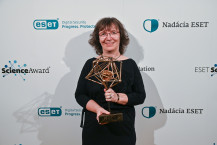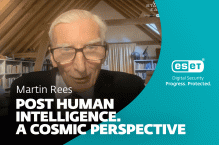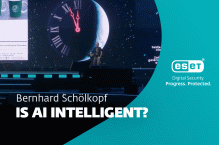What kind of change will the AI revolution bring? Will artificial intelligence be a force for good or a tool for harm? That’s up to us. In his expansive talk, researcher in machine learning and computer vision Philipp Torr explores vital questions about the impact of AI and the promises and perils of robotics through two propositions, to wit that at some point in the future:
- machines will achieve artificial general intelligence (AGI),
- robots will achieve human-like capabilities at reasonable cost.
Beyond technical advances, Mr Torr’s talk mainly fields a range of profound ethical dilemmas, from the rise of lethal autonomous weapons to the challenges of democratizing AI. In fact, can AI be transformed into a public utility, serving the common good? Should AI be nationalized to help ensure its benefits are distributed fairly and its power is harnessed to create a more just society?
AI’s role in shaping our collective future raises no shortage of big questions – and the answers hinge on the choices we make today. Indeed, are we headed for a future of innovation, fairness, and progress, or one of division, job displacement, and unchecked power? As the future of AI is yet to be written, Mr Torr’s talk fields compelling questions about the crossroads we face today and the legacy we leave for tomorrow.
ESET’s commitment to promoting scientific innovation and progress is seen in its ongoing efforts to foster a deep appreciation for science, celebrate the power of groundbreaking research, and connect with leading thinkers in technology and science. ESET recently partnered with Starmus, the global science communication festival, and brought its 7th edition to Bratislava, Slovakia, in May 2024.The festival featured a number of thought-provoking perspectives from some of the planet’s foremost thinkers. You can now relive the experience from the comfort of your home and get a taste of how the power of technology is being harnessed to tackle some of the most pressing challenges facing the world today.







